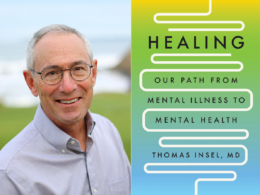Prolonged concentration may cause a compound called glutamate — which can be harmful at high levels — to accumulate in regions at the front of the brain
New Scientist
By Clare Wilson
11 August 2022
This site version was edited by
Joaquim Cardoso MSc.
health transformation institute (HTI)
mental health unit
August 13, 2022
Thinking hard for several hours can leave us feeling mentally tired — and now we may know why.
Prolonged concentration leads to the build-up of a compound called glutamate in regions at the front of the brain.
This may provide an explanation as to why we avoid difficult tasks when mentally fatigued: the glutamate overload makes further mental work difficult.
Too much glutamate is potentially harmful, says Antonius Wiehler at the Paris Brain Institute in France, who led the research. “The brain wants to avoid this, so it is trying to reduce activity.”
Many of us have experienced mental weariness after a hard day of thinking, but until now, we didn’t know why.
The brain doesn’t seem to run out of energy after working hard and even when we aren’t deliberately thinking about anything specific, some brain regions, called the “ default mode network “, are as active as ever.
To learn more, Wiehler and his team used a technique called magnetic resonance spectroscopy (MRS), which measures levels of various chemicals in living tissue harmlessly.
They focused on a region towards the front and sides of the brain called the lateral prefrontal cortex, which much previous work has shown is involved in difficult mental tasks.
The team asked 40 people to do memory tasks while lying in an MRS scanner. These included watching sequences of numbers appear on a screen and stating if the current number was the same as a previous one. Twenty-six of the participants did a harder version of this task, while the other 14 were given an easier one.
Levels of eight different brain chemicals were measured, including glutamate, which is the main signalling chemical between neurons.
At the junctions between neurons, called synapses, electrical signals can’t leap the gap. Instead, tiny particles of compounds such as glutamate are released, which transmit the signal.
After completing the memory tasks for 6 hours, those doing the harder version had raised levels of glutamate in their lateral prefrontal cortex compared with the start of the experiment.
In those doing the easier task, levels stayed about the same.
Across all participants, there was no rise in the other seven brain chemicals that were measured.
Among the participants doing the harder tasks, their glutamate level rise tallied with dilation of the pupils in their eyes, another broad measure of fatigue.
Those doing the simpler task reported feeling tired, but had no glutamate rise or pupil dilation.
Among the participants doing the harder tasks, their glutamate level rise tallied with dilation of the pupils in their eyes, another broad measure of fatigue.

The researchers also investigated if mental fatigue affected decision-making.
They did this by interspersing the memory task with different exercises, such as one where people chose between getting a sum of money straight away or a different one later.
As the participants doing the harder task felt more tired and had an accumulation of glutamate, they shifted to options that gave a small reward immediately.
This could be an example of us avoiding difficult mental tasks, such as calculating which choice to make, to prevent the accumulation of potentially harmful glutamate levels.
“One way to [reduce glutamate build-up] is to activate the lateral prefrontal cortex less during choices,” says Wiehler. “If you do that, you are more often choosing the tempting option.”
Measuring brain glutamate could be used to reveal how hard a region of the brain has been working, says Reto Huber at the University of Zurich in Switzerland.
“We never had a good measure for that on the molecular or neurotransmitter [level]. This looks really promising,” he says.
It could potentially be used by doctors to assess people with conditions that can make concentrating difficult, such as brain fog after covid-19 and attention deficit hyperactivity disorder in children, he says.
Journal reference: Current Biology, DOI: 10.1016/j.cub.2022.07.010
Originally published at https://www.newscientist.com.
Names mentioned
Antonius Wiehler at the Paris Brain Institute in France,
Reto Huber at the University of Zurich in Switzerland.












